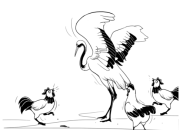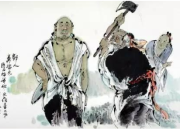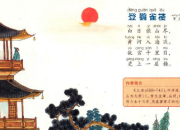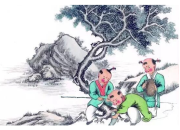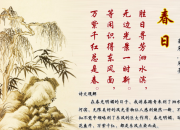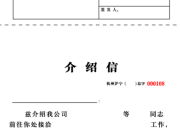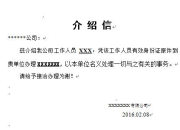腊八节的来历英语作文
时间:2021-08-31腊八节,俗称“腊八” ,即农历十二月初八,古人有祭祀祖先和神灵、祈求丰收吉祥的传统,下面是我为大家带来的腊八节的来历英语作文,希望大家喜欢。
腊八节的来历英语作文
Legend about the origin of this festivity abounds One maintains that over 3,000 years ago sacrificial rites were held in the twelfth lunar month when people offered up their prey to the gods of heaven and earth. The Chinese characters for the hunt and the twelfth month (lie and la) were interchangeable then, and ever since la has been used to refer to both. Since the festival was held on the eighth day of the last month, people later appended the number eighth (ba in Chinese), giving us the current laba.
Buddhism was well accepted in the areas inhabited Han Chinese, who believed that Sakyamuni, the first Buddha and founder of the religion, attained enlightenment on 12/8. Sutras were chanted in the temples and rice porridge with beans, nuts and dried fruit was prepared for the Buddha. With time the custom extended, especially in rural areas where peasants would pray for a plentiful harvest in this way.
其他关于腊八节的英语作文篇一
LaBa morning, get up early, and their brother and sister, and mother in the red laba rice porridge, run to the courtyard
scrambled to feed on every last night at the door of the people on both sides of the ice, with red beans to give him how small mouth, like laughing at the ice of man, the in the mind don't mention how beautiful.
其他关于腊八节的英语作文篇二
Buddhism was well accepted in the areas inhabited by the Han Chinese, who believed that Sakyamuni the first Buddha and founder of the religion, attained enlightenment on the eighth day of the twelfth month. Sutras were chanted in the temples and rice porridge with beans, nuts and dried fruit was prepared for the Buddha. With the passing of time the custom extended, especially in rural areas where peasants would pray for a plentiful harvest in this way.
There is, however, another touching story: When Sakyamuni was on his way into the high mountains in his quest for understanding and enlightenment, he grew tired and hungry. Exhausted from days of walking, he fainted away by a river in India. A shepherdess found him there and fed him her lunch -- porridge made with beans and rice. Sakyamuni was thus able to continue his journey.

